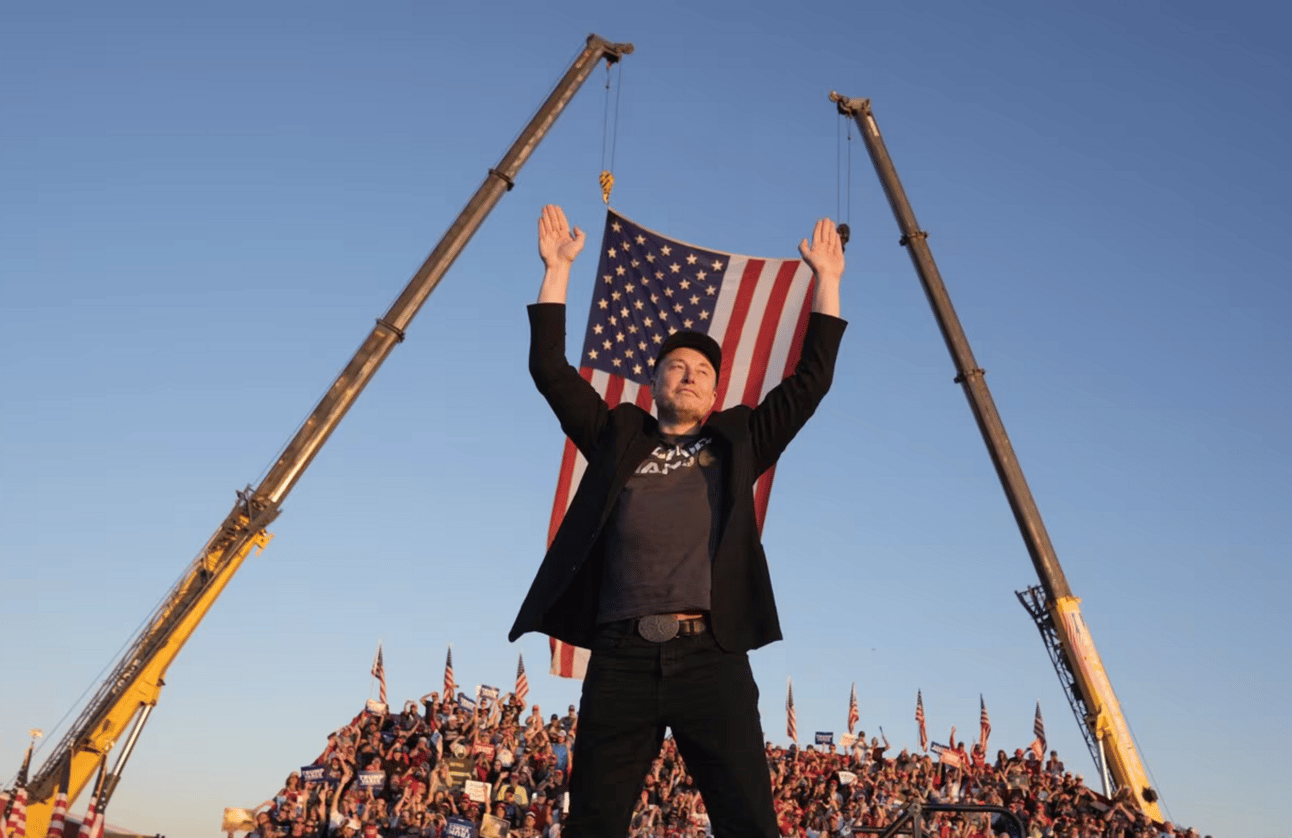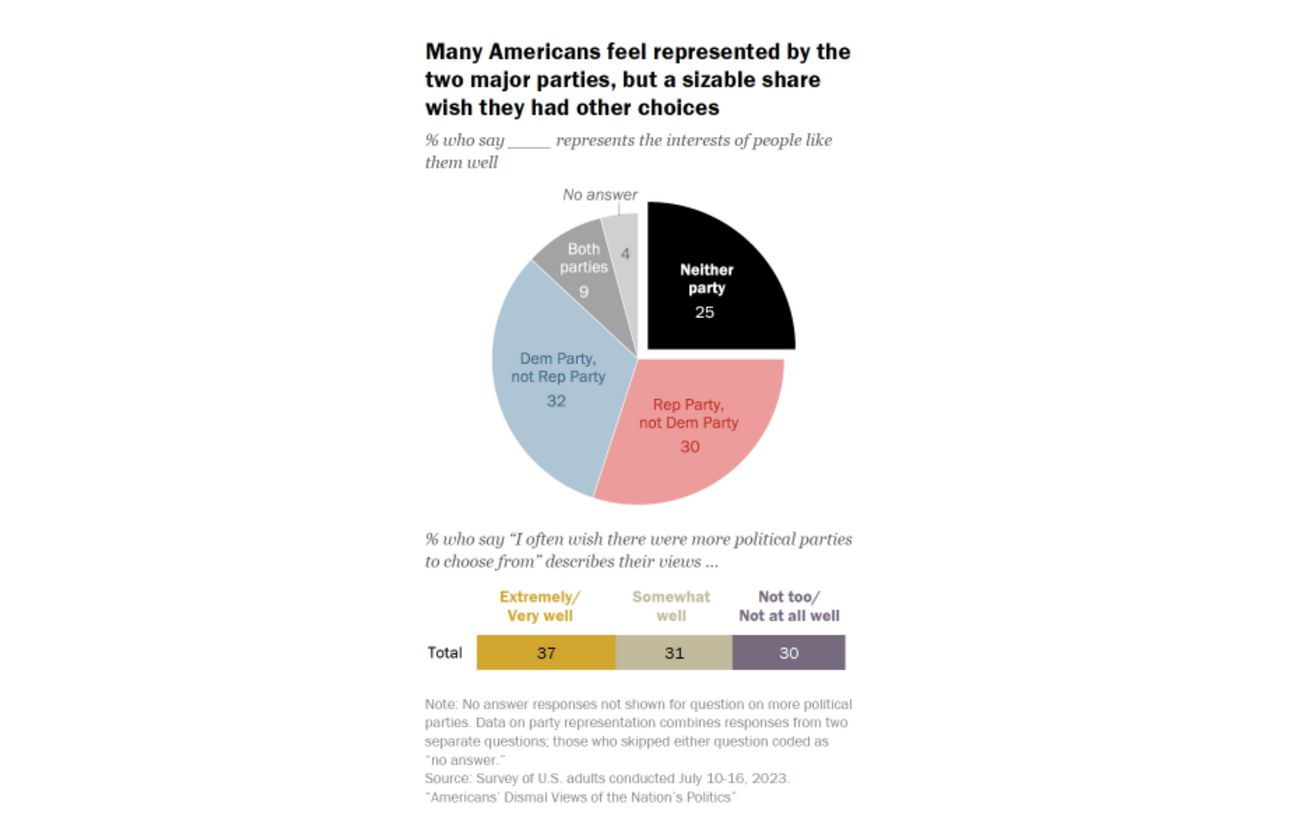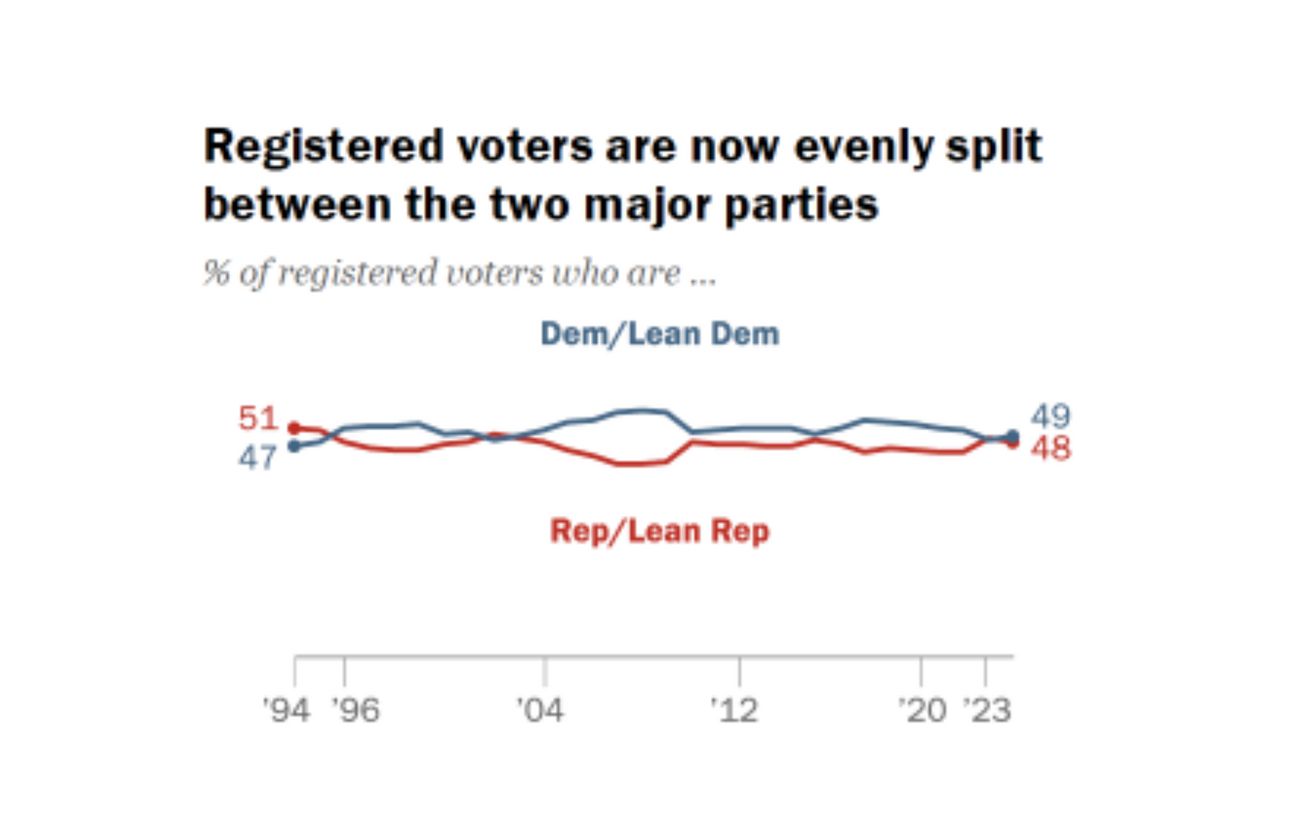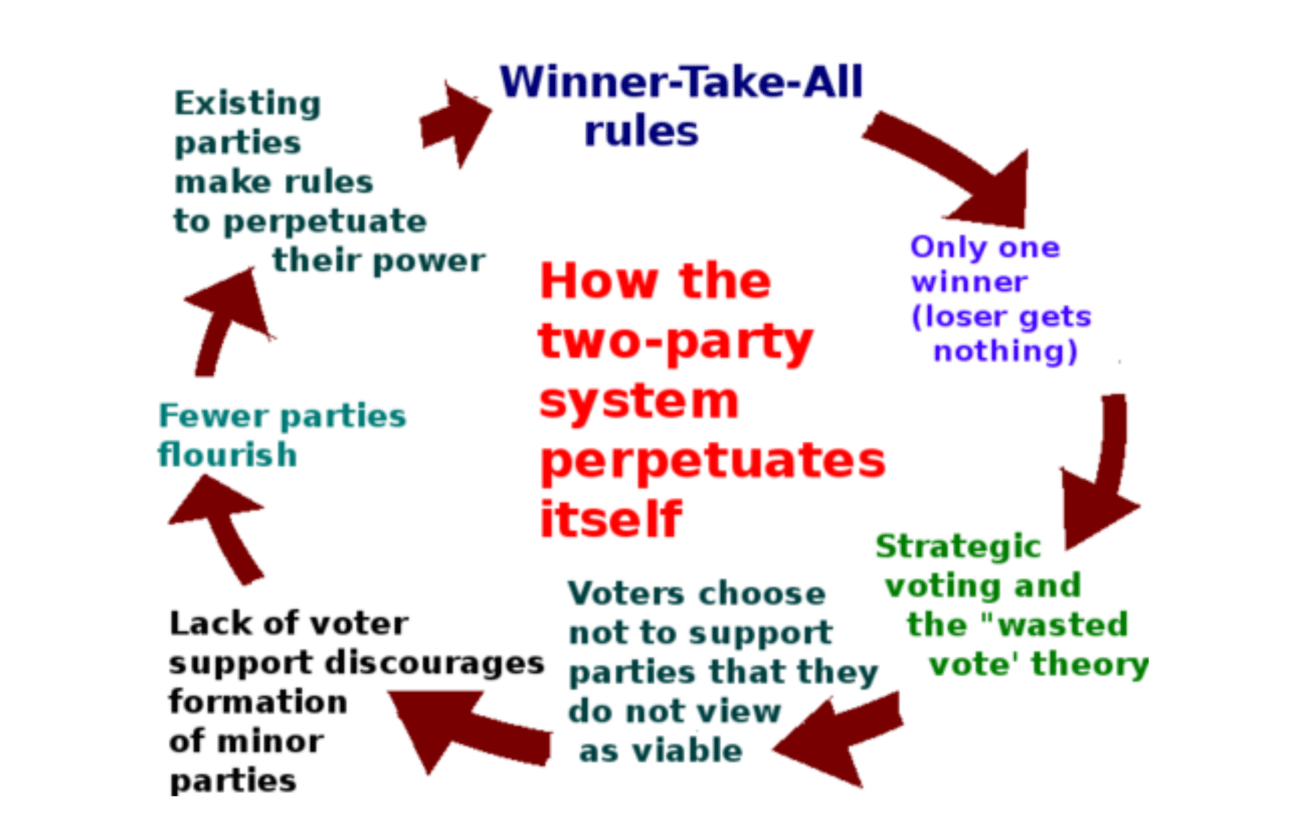- The Money Trails
- Posts
- Why America Only Gives You Two Political Choices
Why America Only Gives You Two Political Choices
Elon Musk's new political party faces the same structural obstacles that have crushed every challenger for over a century

 |  |  |
What’s in This Week’s Issue…
Good morning. Elon Musk just did something no billionaire has dared to do in the modern political age.
He just launched a political party.
Not a Super PAC. Not a fundraising arm. A full-fledged party with its own platform, ambitions, and candidate pipeline: The America Party.
But that raises a question we rarely ask: Why does the U.S., the world’s most powerful democracy, give you only two political choices?
The answer isn’t just historical or ideological. It’s structural.
So this week…
🏆 The Big Play: What Elon Musk’s new party is really up against
💪 The Power Move: What the two-party stranglehold teaches us about how power protects itself
💵 Follow the Money: How a US nonprofit ended up at the center of Gaza’s aid controversy
-GEN
🏆 The Big Play
The biggest money power story of the week.
Why Musk’s America Party is a Battle Against the U.S. Political Dupopoly

Musk at a Trump campaign rally (circa 2024)
Let’s start with the elephant in the room.
Why would Elon Musk, the richest man in the world, voluntarily walk into the graveyard of American third parties?
The reason, as always with Musk, is layered. There’s ego. There’s vision.
But there’s also a genuine, systemic crack in American politics that he’s trying to pry open.
And to understand why it matters, and why it’s nearly impossible, you need to see how the two-party system was built:
1. Why America Only Gives You Two Choices
The U.S. Constitution says nothing about political parties. Yet today, two of them control every inch of government.
This isn’t an accident. It’s the result of a system designed to eliminate competition:
Unlike most democracies, which use proportional representation (where 10% of votes gets you 10% of seats), the U.S. uses a winner-takes-all system in single-member districts.
That means even if a third party gets millions of votes nationwide, it wins nothing unless it comes first in each local race.
In the U.S., only the top vote-getter wins. So voters avoid "splitting the vote" and third-party support collapses over time.
This is why Ross Perot, who won 19% of the national vote in 1992, didn’t get a single Electoral College vote.
It’s also why the Green Party, the Libertarians, and countless others barely leave a scratch.
And from funding to airtime to debate access, the system channels everything through only two parties: Democrat and Republican.
So, it's not a flaw; it’s a feature designed to preserve power, not expand choice.
And that’s exactly the structure Musk’s America Party is stepping into. But he isn’t the first one to try.

2. What Happened to Other Political Parties?
The U.S. wasn’t always a two-party state. In fact, its early years saw fierce competition between Whigs, Federalists, Democratic-Republicans, and others.
But in the modern era, third parties have been systematically crushed by the same barriers Musk now faces.
The Reform Party: Founded by billionaire Ross Perot in the 1990s, it once polled as high as 39% nationally in the 1992 campaign. But after internal feuds and ballot access barriers, it collapsed.
The Green Party: Ralph Nader’s 2000 campaign won 2.7 million votes but was blamed for splitting the liberal vote and handing the election to George W. Bush. This further led to tighter ballot restrictions.
The Libertarian Party: Despite running every election cycle, it remains marginalized due to limited media coverage and debate access.
The Forward Party: Andrew Yang’s centrist startup made headlines in 2021, but quickly faded due to lack of candidates, infrastructure, and mainstream support.
Every third-party movement in the 21st century has run into the same brick wall: a system rigged against them through ballot access laws, debate thresholds, media blackouts, and voter psychology.
Even when Americans crave new voices, the system doesn’t let them in.
This is the fire Musk has chosen to walk through. But unlike previous challengers, he’s walking in with something they lacked: Power.

3. Can Musk’s America Party Actually Break the Duopoly?
Even if Musk bypasses institutional gatekeeping, there’s a deeper problem: American political identity is tribal.
Most voters, especially older ones, don’t just vote based on issues. They vote based on party identity.
Republican vs. Democrat is not just a ballot choice. It’s a worldview, a culture, and a social identity.
This is why third parties usually pull votes from one side without converting the other.
So, any attempts to “unite the middle” fail because in American politics, the middle barely exists.
But there’s a general shift underway that could change this.
Younger voters are less loyal to parties, more open to alternatives, and far more online, which is Musk’s native terrain.

And if there’s ever been a crack in the system wide enough for a third party to break in, it’s now.
So, will Musk succeed?
That depends on what you think this move is really about.
If it’s about winning power, the odds are stacked against him.
But if it’s about disrupting the game itself, then he’s already started. And America’s two-party duopoly might just get its first real threat in decades.
💪 The Power Moves
Playbook for understanding the game of power.
How Systems Eliminate Choice While Claiming to Preserve It

Musk's America Party faces the same reality that has crushed every challenger for 150 years: a system built to protect the duopoly, not serve you.
And this reveals how real power works.
The most effective control doesn't come from force or propaganda. It comes from designing the rules so alternatives seem impossible, not just difficult.
You see this everywhere:
→ Tech platforms that make switching costly
→ Financial systems that favor established players
→ Markets where "competition" exists only between pre-approved options
The genius is that you never feel restricted. You feel like you're choosing freely between the options presented to you.
But you never question who decided what those options would be.
The Takeaway:
When any system offers you limited choices despite widespread dissatisfaction, understand that the real power lies not with the visible players but with whoever designed the rules that keep alternatives out.
Because the most sophisticated power doesn’t limit your choices. It engineers the system so you never realize how many choices you never had.
💵 Following the Money
Three of the wildest financial and corruption stories from around the world.

Palestinians at an aid distribution site run by the U.S.-backed Gaza Humanitarian Foundation (GHF)
✨ Poll time!
If Elon Musk’s political party actually gains momentum, what do you think will happen? |


